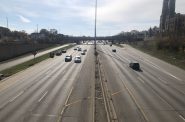Working Remote is Overrated, Cities Will Be Back
All the city news you can use.
Every day at The Overhead Wire we sort through over 1,500 news items about cities and share the best ones with our email list. At the end of the week, we take some of the most popular stories and share them with Urban Milwaukee readers. They are national (or international) links, sometimes entertaining and sometimes absurd, but hopefully useful.
Remote work is overrated, and cities will be back: Jerusalem Demsas interviews Enico Moretti, a labor and urban economics researcher at UC Berkeley, about his assertion that people won’t be working fully remotely in the long run. Moretti states that remote work will not be gutting urban centers because the economy creates dense clusters of high productivity workers, and this agglomeration trend will bounce back after the pandemic has subsided. (Jerusalem Demasas | Vox)
A zero carbon action plan for transportation: Transport and climate expert Dan Sperling is described as the “godfather of transportation and environmental policy” and argues that while we need to increase the use of electric vehicles, it’s also necessary to reduce vehicle miles traveled, two things that often are at odds with each other. In order to get to reduce emissions, we need to let neighborhoods decide what works best because they’ll all be different solutions. (Andrew Salzberg | Decarbonizing Transportation)
The myth and truth about interstate highways: This in depth historical analysis traces the origins of federal highway policies, programs, and projects. The central myth, states author Sarah Jo Peterson, allows policymakers to shrug off the damaging impacts of urban highway construction, particularly on the lives of generations of Black Americans. The myth busting is especially pertinent today as the current administrations seeks to right the wrongs of transportation policies past. (Sarah Jo Peterson | The Metropole)
Will telework actually increase driving?: As more people work from home, there is rising concern that the practice will cause longer commutes and more driving, not less. People who work in downtown offices walk to lunch or meetings, while teleworkers often drive to those appointments. As workers move to more remote locations thanks to work from home, their car trips will increase as well. Rhetoric around telework needs to reflect this reality, instead of being hailed as the panacea for traffic. (David Zipper | Slate)
Alissa Guther contributed to these summaries
Quote of the Week
Biodiversity exists everywhere, even the smallest urban green spaces provide essential habitats for the most minute of species. If we manage to link those small spaces together, then the potential increases. Fortunately, we are seeing projects emerging in cities around the world that demonstrate the possibilities.
–Amanda Sturgeon in the Guardian discussing how we can rewild our cities one little flower pot or small plot of land at a time.
This week on the podcast, Danielle Arigoni, AARP’s Director of Livable Communities joins the show.
Want more links to read? Visit The Overhead Wire and signup.
If you think stories like this are important, become a member of Urban Milwaukee and help support real, independent journalism. Plus you get some cool added benefits.
Urban Reads
-
Oakland Launches Universal Basic Mobility Program
 Jul 21st, 2024 by Jeff Wood
Jul 21st, 2024 by Jeff Wood
-
How Traffic Noise Impacts Children’s Brains
 Jul 1st, 2024 by Jeff Wood
Jul 1st, 2024 by Jeff Wood
-
Number of Super Commuters is Rising
 Jun 22nd, 2024 by Jeff Wood
Jun 22nd, 2024 by Jeff Wood




















The one disappointment I had with the remote work interview was they did not discuss the cost of office space. The agglomeration argument is well known — Saskia Sassen made the case decades ago. But corporations are paying optimal prices for downtown skyscrapers in cities like NYC, SF, or Chicago. It makes sense that tech companies will cut back on their “sunk costs” of buildings and rely on a greater share of remote work. The interview’s point that tech workers may cut back to fewer days in the office support that conclusion.